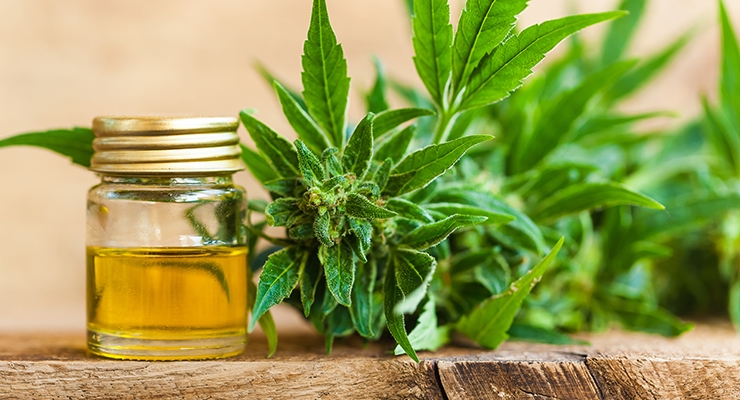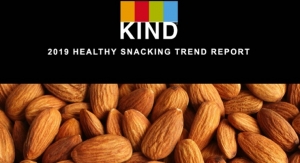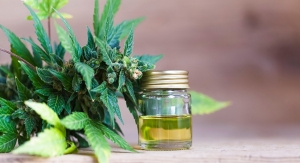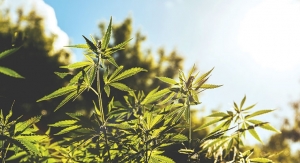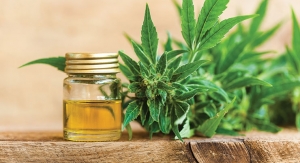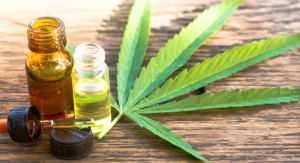By Greg Doherty, Bolton & Company12.06.18
CBD has become ubiquitous. It’s in everything from cosmetics to animal and human supplements to edibles—including those that also contain the psychoactive substance THC. The barrier to entry for selling CBD products is almost non-existent. It’s a digital marketer’s dream. Much of it is sold online by companies that acquire white label CBD products and set up a website.
The entrepreneurial spirit is alive and well, and CBD is a testament to that. This article will not debate the benefits of CBD products, nor will it touch on the legality of CBD, a moving target at best.
Instead, this article addresses the issue of getting liability insurance for companies selling CBD products. It’s not very reassuring what’s available to protect purveyors from lawsuits alleging that products caused consumers bodily harm, or that a CBD product was falsely advertised (more on that later).
Why Would Anyone Insure CBD?
CBD aficionados reading this are probably wondering why insurance companies are not lining up to insure these products—and for a low premium for that matter—reflective of a presumed low risk and the great benefits these products claim. From an insurer’s standpoint, it’s not that easy.
The foremost challenge is the regulatory environment. It’s a mess and will no doubt change in some fashion by the time this article is published. Historically, insurance companies have been loath to insure illegal activities or things that are against public policy. To say that current issues surrounding CBD products fall into both of these categories is like seeing a road sign that says “unsafe when under water.”
Remember too that these insurers generally are publicly traded companies, which have shareholders looking over their shoulders who will not hesitate to file a derivative action lawsuit against company management if they feel that insuring CBD products has been detrimental to the company.
Current Landscape of CBD Insurers
Lloyd’s of London, traditionally a facility that will insure a starlet’s legs and other obscure risks, currently will not insure CBD products—with an exception being granted here and there, usually when CBD is a miniscule part of a company’s sales. This by itself is telling.
As of this writing, there are four viable insurance carriers offering coverage for CBD products in the U.S. There may be one or two “also-rans” but they aren’t active or worth mentioning at this point in time. But this is where it gets interesting. The devil is in the details, and nowhere is that more true than when you are ready to get your wallet out and pay a premium for some liability insurance. Do you really know what coverage you are getting? In the case of insurance for CBD products, its caveat emptor (buyer beware) at its finest.
For example, Insurance Company A attaches two exclusionary endorsements to its product liability policies (exclusions are paraphrased): 1) Coverage is limited to “approved products” being sold online on an intrastate basis only (the insured’s state of domicile); no coverage is provided for products shipped across state lines; 2) No coverage is provided for foreign products, which are defined as products manufactured or delivered from any place outside of the U.S., its territories, Canada, or Puerto Rico. This exclusion applies even if a foreign product is merely a component part of a product manufactured in the U.S.
First of all, “approved products” is an undefined term. Second, how many CBD startups do you know that are selling online are selling and shipping to multiple states in violation of the exclusion? Probably all of them. Finally, when CBD is combined with any raw material or other component from outside the U.S., coverage is completely taken away.
I wonder how many people who have purchased these policies know these Swiss cheese holes are in the policy?
Insurance Company B has an exclusion that strips away all coverage for CBD products. It’s convoluted, but in essence takes away coverage due to any illness or disease, alleged bodily injury, adverse health effect, malady of the human body, etc. for any product sold by or on behalf of the insured and includes any Cannabis sativa, Cannabis indica, hemp, or marijuana or any of its derivatives.
Insurance Company C often attaches an endorsement that limits coverage to specified products listed on a schedule, and normally buried deep in the policy where you won’t see it. As a practical matter, these would normally be products which you listed in your application for insurance, and were selling at that time.
But things change and people are constantly coming out with new products. What this endorsement says (again paraphrasing) is that if you want coverage for additional products not on this schedule, you agree to submit a complete description of those, including but not limited to their design, ingredients, construction, specifications, instructions, warning labels, packaging, and formulation. Otherwise these products will not be covered.
Insurance Company D is currently and literally the guys in the white hats. They have no exclusions that gut the coverage and don’t tell you about it. This is the only one we will sell to CBD companies seeking coverage. This should not come as a surprise either: insurance coverage from Company D is not the lowest price. I’ve been in commercial insurance a long time and I know people like the lowest price for what appears to be comparable coverage, but is not.
A few words about insurance for false advertising claims: as I have said in prior articles on this subject, it does not exist. Retain a good attorney or a competent consultant to help keep you out of trouble.
In conclusion, the wild world of CBD product sales is fraught with perils, not the least of which is buying liability insurance that will be there when you need it most.
Greg Doherty
Bolton & Company
Greg Doherty is a commercial insurance broker with Bolton & Company Insurance Brokers and Employee Benefits Consultants, Pasadena, CA. He is the executive vice president and managing director of the Dietary Supplement Practice Group for the firm, which specializes in the nutritional product and dietary supplement industries, including but not limited to contract manufacturers, raw materials suppliers, distributors/retailers. Mr. Doherty has four decades of experience as a broker, focusing solely on the dietary supplement industry for the last 14 years. He can be reached at gdoherty@boltonco.com; Phone: 626-535-1409; Website: www.gregdoherty.net.
The entrepreneurial spirit is alive and well, and CBD is a testament to that. This article will not debate the benefits of CBD products, nor will it touch on the legality of CBD, a moving target at best.
Instead, this article addresses the issue of getting liability insurance for companies selling CBD products. It’s not very reassuring what’s available to protect purveyors from lawsuits alleging that products caused consumers bodily harm, or that a CBD product was falsely advertised (more on that later).
Why Would Anyone Insure CBD?
CBD aficionados reading this are probably wondering why insurance companies are not lining up to insure these products—and for a low premium for that matter—reflective of a presumed low risk and the great benefits these products claim. From an insurer’s standpoint, it’s not that easy.
The foremost challenge is the regulatory environment. It’s a mess and will no doubt change in some fashion by the time this article is published. Historically, insurance companies have been loath to insure illegal activities or things that are against public policy. To say that current issues surrounding CBD products fall into both of these categories is like seeing a road sign that says “unsafe when under water.”
Remember too that these insurers generally are publicly traded companies, which have shareholders looking over their shoulders who will not hesitate to file a derivative action lawsuit against company management if they feel that insuring CBD products has been detrimental to the company.
Current Landscape of CBD Insurers
Lloyd’s of London, traditionally a facility that will insure a starlet’s legs and other obscure risks, currently will not insure CBD products—with an exception being granted here and there, usually when CBD is a miniscule part of a company’s sales. This by itself is telling.
As of this writing, there are four viable insurance carriers offering coverage for CBD products in the U.S. There may be one or two “also-rans” but they aren’t active or worth mentioning at this point in time. But this is where it gets interesting. The devil is in the details, and nowhere is that more true than when you are ready to get your wallet out and pay a premium for some liability insurance. Do you really know what coverage you are getting? In the case of insurance for CBD products, its caveat emptor (buyer beware) at its finest.
For example, Insurance Company A attaches two exclusionary endorsements to its product liability policies (exclusions are paraphrased): 1) Coverage is limited to “approved products” being sold online on an intrastate basis only (the insured’s state of domicile); no coverage is provided for products shipped across state lines; 2) No coverage is provided for foreign products, which are defined as products manufactured or delivered from any place outside of the U.S., its territories, Canada, or Puerto Rico. This exclusion applies even if a foreign product is merely a component part of a product manufactured in the U.S.
First of all, “approved products” is an undefined term. Second, how many CBD startups do you know that are selling online are selling and shipping to multiple states in violation of the exclusion? Probably all of them. Finally, when CBD is combined with any raw material or other component from outside the U.S., coverage is completely taken away.
I wonder how many people who have purchased these policies know these Swiss cheese holes are in the policy?
Insurance Company B has an exclusion that strips away all coverage for CBD products. It’s convoluted, but in essence takes away coverage due to any illness or disease, alleged bodily injury, adverse health effect, malady of the human body, etc. for any product sold by or on behalf of the insured and includes any Cannabis sativa, Cannabis indica, hemp, or marijuana or any of its derivatives.
Insurance Company C often attaches an endorsement that limits coverage to specified products listed on a schedule, and normally buried deep in the policy where you won’t see it. As a practical matter, these would normally be products which you listed in your application for insurance, and were selling at that time.
But things change and people are constantly coming out with new products. What this endorsement says (again paraphrasing) is that if you want coverage for additional products not on this schedule, you agree to submit a complete description of those, including but not limited to their design, ingredients, construction, specifications, instructions, warning labels, packaging, and formulation. Otherwise these products will not be covered.
Insurance Company D is currently and literally the guys in the white hats. They have no exclusions that gut the coverage and don’t tell you about it. This is the only one we will sell to CBD companies seeking coverage. This should not come as a surprise either: insurance coverage from Company D is not the lowest price. I’ve been in commercial insurance a long time and I know people like the lowest price for what appears to be comparable coverage, but is not.
A few words about insurance for false advertising claims: as I have said in prior articles on this subject, it does not exist. Retain a good attorney or a competent consultant to help keep you out of trouble.
In conclusion, the wild world of CBD product sales is fraught with perils, not the least of which is buying liability insurance that will be there when you need it most.
Greg Doherty
Bolton & Company
Greg Doherty is a commercial insurance broker with Bolton & Company Insurance Brokers and Employee Benefits Consultants, Pasadena, CA. He is the executive vice president and managing director of the Dietary Supplement Practice Group for the firm, which specializes in the nutritional product and dietary supplement industries, including but not limited to contract manufacturers, raw materials suppliers, distributors/retailers. Mr. Doherty has four decades of experience as a broker, focusing solely on the dietary supplement industry for the last 14 years. He can be reached at gdoherty@boltonco.com; Phone: 626-535-1409; Website: www.gregdoherty.net.

